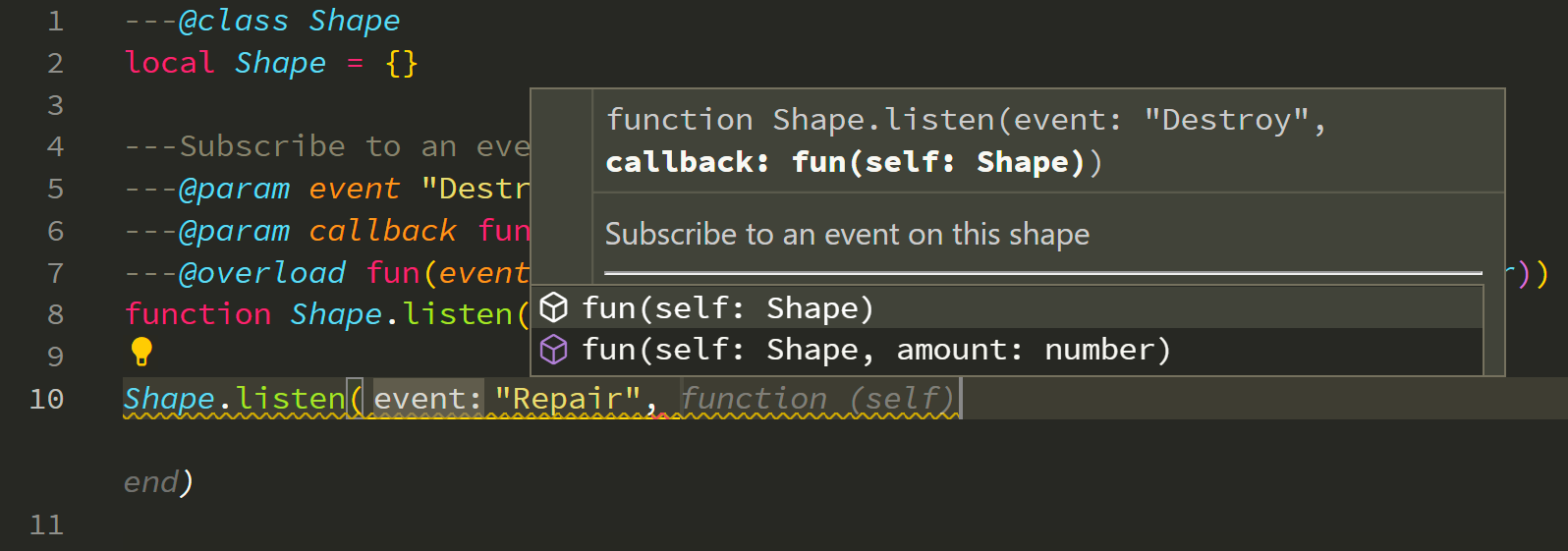This would also fix another issue I'm having where classes that have both a static and method variant of the same function aren't narrowing, eg:
---@meta
---@class Foo
---@overload fun(): Foo
Foo = {}
---@param eventName string
---@param callback function
function Foo.Subscribe(eventName, callback) end
---@param eventName string
---@param callback function
function Foo:Subscribe(eventName, callback) end
...
local inst = Foo()
inst:Subscribe(" --> Provides autocompletion for the static method, treating the string as the callback
The Problem
I think function overloading needs some changes in order for it to really function in the way that most people would find useful. This is especially problematic with event systems, as I and others have encountered.
Example
Currently, let's say I have the following function that I want to provide an overload for:
Using
@overloadThe first logical option is to use
@overload:But there is a problem, when using methods ( Ok, so for testing, let's replace the method (
Ok, so for testing, let's replace the method (
:), the first parameter only gets completions for the first@paramand ignores the@overloadentirely.:) with a static function (.):This still isn't great, we are still offered both callbacks even though the info we have entered only matches the
@overload. At least the first parameter was completed this time.Multiple Definitions
So then maybe we try defining multiple functions where each
eventparam has the type set to the event name we are looking for:Now, even as methods ( At least when defining the function twice, we are able to write a separate description for each of them as well as their
At least when defining the function twice, we are able to write a separate description for each of them as well as their
:) we are receiving correct completions for the first parameter... nice! However, we are still receiving two completions for the callback - there is no narrowing happening. The completion also shows theeventas"Destroy", which is incorrect for our second definition as we have only allowed"Repair".@params and@returns. However, we receive a warning saying that we have a duplicate field.Proposed Solution
See @flrgh's idea to add a
@functionannotation to add more in-depth support for defining functions overall.